Filter by
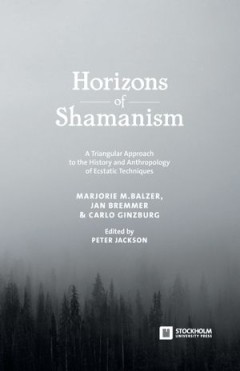
Horizons of Shamanism a Triangular Approach To The History and Anthropology …
The multifarious and sometimes contested concept of “shamanism” has aroused intense popular and scholarly interest since its initial coinage by the Russian scholar V. M. Mikhailovsky in the late 19th century. In this book, three leading scholars, representing different branches of the humanities, dwell on the current status of shamanic practices and conceptions of the soul, both as ‘etic�…
- Edition
- -
- ISBN/ISSN
- 9789176350270
- Collation
- -
- Series Title
- -
- Call Number
- -
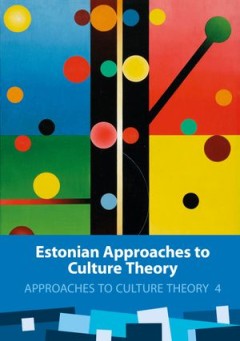
Estonian Approaches to Culture Theory
The fourth volume in the Approaches to Culture Theory series is a contemporary Estonian anthology in culture theory. Most of the authors are members of the research groups of the Centre of Excellence in Cultural Theory: archaeology, cultural communication studies, contemporary cultural studies, ethnology, folkloristics, religious studies, landscape studies, and semiotics. These scholars have re…
- Edition
- -
- ISBN/ISSN
- 9789949326136
- Collation
- -
- Series Title
- -
- Call Number
- -
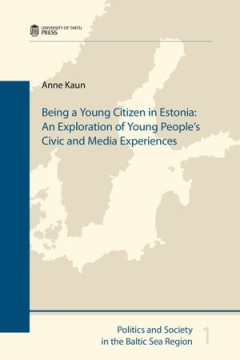
Being a Young Citizen in Estonia An Exploration of Young People’S Civic an…
The book gives an intriguing insight into how young people in Estonia, twenty years after the establishment of democracy, perceive their own role as citizens. It does so in a theoretical framework that stresses the embeddedness of the civic experiences in a media-dominated environment, thus closely linking civic and media experiences. Based on the analysis of both qualitative interview data and…
- Edition
- -
- ISBN/ISSN
- 9789949322749
- Collation
- -
- Series Title
- -
- Call Number
- -

Piezoelectric Electromechanical Transducers for Underwater Sound, Part II: Su…
The book presents a broad-scope analysis of piezoelectric electromechanical transducers and the related aspects of practical transducer design for underwater applications. It uses an energy method for analyzing transducer problems that provides the physical insight important for the understanding of electromechanical devices. Application of the method is first illustrated with transducer exampl…
- Edition
- -
- ISBN/ISSN
- 9781644698266
- Collation
- -
- Series Title
- -
- Call Number
- -

Archaeological Research in Estonia 1865–2005
This volume is dedicated to the historiography and analysis of the present state of Estonian archaeology. Part I (articles by Valter Lang and Marge Konsa) provides a review of the general development of archaeological research in Estonia from the 19th century to the beginning of the 21st century, focusing on institutional changes and advances in theoretical thinking and approaches. Part II incl…
- Edition
- -
- ISBN/ISSN
- 9789949112333
- Collation
- -
- Series Title
- -
- Call Number
- -
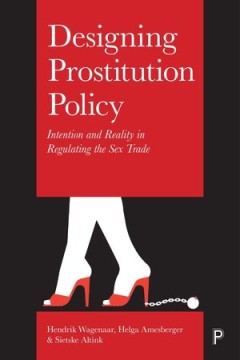
Designing Prostitution Policy : Intention and Reality in Regulating the Sex T…
While the debate on regulating prostitution usually focuses on national policy, it is local policy measures that have the most impact on the ground. This book is the first to offer a detailed analysis of the design and implementation of prostitution policy at the local level and carefully situates local policy practices in national policy making and transnational trends in labour migration and …
- Edition
- -
- ISBN/ISSN
- 9781447324249
- Collation
- -
- Series Title
- -
- Call Number
- -

Cultural Heritage Ethics : Between Theory and Practice
Theory without practice is empty, practice without theory is blind, to adapt a phrase from Immanuel Kant. The sentiment could not be truer of cultural heritage ethics. This intra-disciplinary book bridges the gap between theory and practice by bringing together a stellar cast of academics, activists, consultants, journalists, lawyers, and museum practitioners, each contributing their own expert…
- Edition
- -
- ISBN/ISSN
- 9781783740697
- Collation
- -
- Series Title
- -
- Call Number
- -
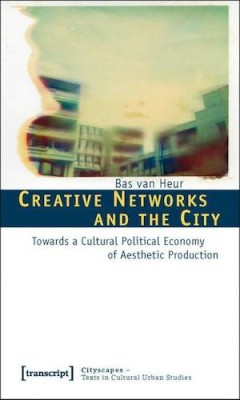
Creative Networks and the City : Towards a Cultural Political Economy of Aest…
This book offers a fundamental contribution to the literature on the creative industries and the knowledge-based economy by focusing on three aspects: urban spaces as key sites of capitalist restructuring, creative industries policies as state technologies aimed at economic exploitation, and the role of networks of aesthetic production in inflecting these tendencies. It simultaneously goes beyo…
- Edition
- -
- ISBN/ISSN
- 9783837613742
- Collation
- -
- Series Title
- -
- Call Number
- -

Classic Concepts in Anthropology
The late anthropologist Valerio Valeri (1944–98) was best known for his substantial writings on societies of Polynesia and eastern Indonesia. This volume, however, presents a lesser-known side of Valeri's genius through a dazzlingly erudite set of comparative essays on core topics in the history of anthropological theory. Offering masterly discussions of anthropological thought about rit…
- Edition
- -
- ISBN/ISSN
- 9780990505082
- Collation
- -
- Series Title
- -
- Call Number
- 301 CLA c
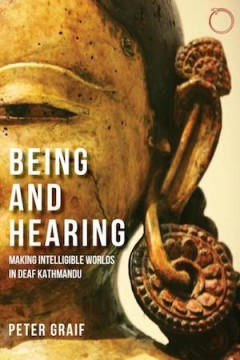
Being and Hearing: Making Intelligible Worlds in Deaf Kathmandu
How do deaf people in different societies perceive and conceive the world around them? Drawing on four years of anthropological fieldwork in Nepali deaf communities, Being and Hearing shows how questions of cultural difference are profoundly shaped by local habits of perception. Beginning with the premise that philosophy and cultural intuition are separated only by genre and pedigree, Peter Gra…
- Edition
- -
- ISBN/ISSN
- 9780999157039
- Collation
- -
- Series Title
- -
- Call Number
- 301 GRA b
 Computer Science, Information & General Works
Computer Science, Information & General Works  Philosophy & Psychology
Philosophy & Psychology  Religion
Religion  Social Sciences
Social Sciences  Language
Language  Pure Science
Pure Science  Applied Sciences
Applied Sciences  Art & Recreation
Art & Recreation  Literature
Literature  History & Geography
History & Geography